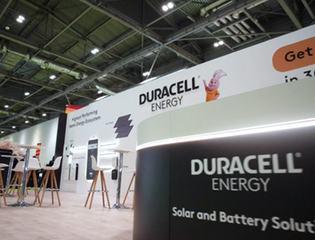Energy Comparison: Compare Gas and Electric Tariffs
27 September 2024

Since the market crash of 2021, rising energy costs have been a real issue for many households.
Consequently, people are now becoming savvier about different energy tariffs, and are spending time looking to compare the available energy tariffs, as well as different energy sources.
Gas and electricity are the two main common energy sources for homes in the UK. However, the rise in energy prices has also led households to look into alternative energy sources such as solar power. The improved technology around home battery solar storage systems has increased the uptake of solar energy, as the main hurdle to its use has been overcome. Whatever energy you are currently using to power your home, it is worth looking at your tariff and seeing if it is right for your household. If you are worried that your old gas boiler is coming to the end of its life, it might be worth looking into alternatives, such as investing in solar panels, or an all-electric household energy system.
What are the tariffs for gas and electricity in the UK?
There are many different tariffs available from different energy companies in the UK. Comparison websites can help to make comparing the different tariffs easier and are always worth using. The main difference in tariffs is whether you choose a fixed price tariff, where you get charged the same rate for your energy across 24 hours, or a variable rate tariff, where the energy is cheaper during off-peak hours, and more expensive during peak hours. Standardly peak hours are the evening and the morning, but make sure you check the exact times for your variable tariff.
How can I compare energy prices and tariffs?
Comparison websites are a helpful tool for comparing prices. They allow you to easily compare different energy companies and can help you to find the best tariff for your household. You need to find out how much energy you use in a standard month, in order to calculate the best tariff for you. Bear in mind that energy consumption will vary across households, depending on your lifestyle and certain factors, such as whether you work from home, how many people live in your household, and how much technology you use.
Which energy tariff should I choose?
For the majority of us, the choice will come down to cost. Choose the cheapest energy tariff for you. However, if you are looking to reduce your carbon footprint, you may wish to choose a greener energy company that produces their energy through renewable sources, such as solar, wind, or tidal.
How do I choose the right tariff?
If you are considering whether to choose a fixed or variable tariff, you need to be very clear about how the price variation will impact your life. Many people are now investing in home battery storage so that they can choose a variable rate and buy their energy during the night time when the prices are cheaper, storing the energy in their home battery, and then using it during the peak hours. This can be an excellent way to save money on your energy consumption.
What is the average gas and electric bill per month in the UK?
Figures from the energy comparison website confused.com, state that the “average cost of monthly electric bills in the UK is £80.40” and the “average monthly bill for UK gas users is currently £80.12.” Average in this context, is based upon Ofgem’s definition of a ‘typical’ British household, which is a house with 2-3 bedrooms containing an average of 2.4 people.
Who has the cheapest energy tariff in the UK?
Energy prices fluctuate, with energy suppliers changing their deals constantly to try and attract new customers. As a general rule, if you have been with your supplier for a while, it is worth looking around to see what deals are available. Often the best deals are only available to new customers.
Should I switch from gas energy to electric energy?
If you have a modern and functioning gas boiler, then it is worth staying with gas until the boiler needs replacing. However, if your gas boiler needs replacing, then this can be very expensive. Gas energy is traditionally cheaper; however, electric systems have improved greatly and can be cheaper to install than their gas counterparts. It is also wise to consider investing in alternative energy sources, such as solar panels.
How long will it take to switch energy suppliers?
It is in the interests of your new energy supplier to make the switch as seamless as possible. Under Ofgem’s Energy Switch Guarantee, your switch should be completed within five working days once you’ve signed up with a new supplier. If not, you can contact Ofgem for compensation.
How do I know which energy supplier is right for me?
If cost is your driving factor, then look for the supplier who will offer you the cheapest deal for your home. If you are concerned about your carbon footprint, then look for an energy supplier who offers green energy. However, make sure you read the small print, as it may only be a proportion of the energy that is green. If green energy is your main concern then it may be worth looking into a solar system setup for your home, so that you can guarantee the green credentials of your household energy.
Choosing the best energy for your home – gas, electric or alternatives
It is worth considering all the available energy sources for powering your home. While the mainstream choices are gas or electric, solar power is an excellent alternative. If you are investing in solar panels, then choosing a Duracell Energy home battery will give you a practical and affordable way to store the energy that you have generated through your solar panels. Our range of Duracell Energy home batteries, EV chargers, and inverters all work together with our impressive app to give you complete control of your entire household energy system. Embrace a greener tomorrow, with Duracell Energy home batteries today. Simply use our online quote calculator to help you choose the best solar battery storage set-up for your home.


